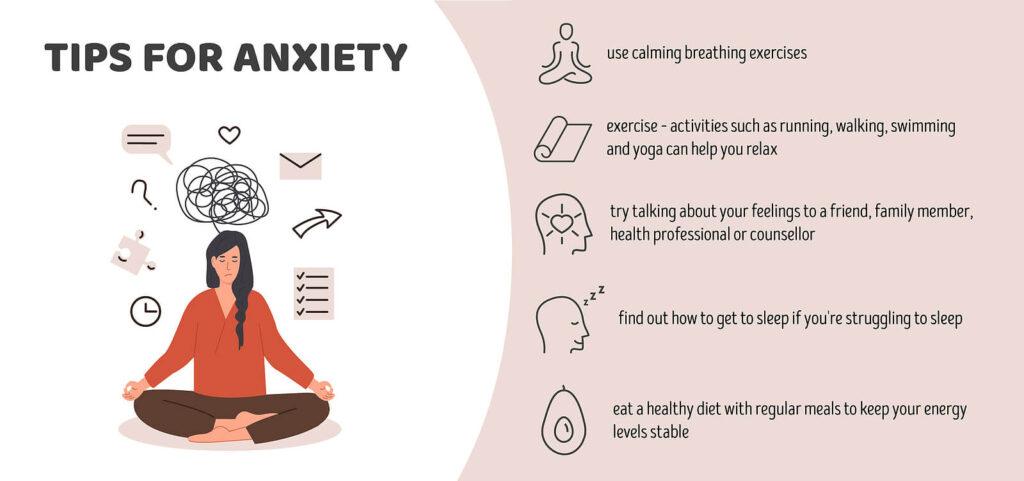Anxiety Treatment NYC – Anxiety Medications
Anxiety Treatment NYC: How to Choose the Right Medication
Treatment of anxiety disorder has become increasingly sophisticated over the years, thanks to ongoing research in the field of psychiatry. As a result, psychiatrists now have an array of effective medications at their disposal to treat anxiety disorder, ranging from antidepressants to anti-anxiety medications (benzodiazepines) and BuSpar, an anti-depressant that lacks the sedating qualities of benzodiazepines like Xanax and Valium.
How Do Anxiety Medications Work?
When it comes to treating anxiety, medications can be an important part of a comprehensive treatment plan. There are various types of medications available for the treatment of anxiety, including antidepressants, benzodiazepines, BuSpar, Gabapentin, and antipsychotics. In this section, we will discuss how each of these medications work to treat anxiety.
Antidepressants are a type of medication typically used to treat anxiety by altering the levels of neurotransmitters such as serotonin and norepinephrine in the brain. By doing so, antidepressants can help improve mood and reduce symptoms of anxiety. Common types of antidepressants include selective serotonin reuptake inhibitors (SSRIs) and serotonin-norepinephrine reuptake inhibitors (SNRIs).
Types Of Anxiety Medications
Benzodiazepines
Benzodiazepines are fast-acting medications that work by increasing the action of gamma-aminobutyric acid (GABA), a neurotransmitter that calms the nervous system and reduces feelings of anxiety. Common benzodiazepines used to treat anxiety include Xanax (alprazolam), Valium (diazepam), and Ativan (lorazepam).
BuSpar
BuSpar is a type of anti-anxiety medication known as an anxiolytic. It works by decreasing the activity of certain chemicals in the brain to reduce symptoms of anxiety. Unlike benzodiazepines, BuSpar does not cause drowsiness or a sedative effect.
Gabapentin
Gabapentin is an anticonvulsant drug that is sometimes used to treat severe, treatment-resistant anxiety. It works by stimulating GABA receptors in the brain which helps reduce feelings of anxiety.
Antipsychotics are usually used to treat severe, treatment-resistant anxiety. They work by blocking certain chemicals in the brain associated with psychosis and reducing their effects on the brain. Common antipsychotics used to treat anxiety include quetiapine (Seroquel) and risperidone (Risperdal).
It is important to note that medications should always be taken as prescribed by your doctor and that it may take some time before you start to feel the full benefits of any medication. Your psychiatrist can help determine the best anxiety treatment plan for you based on your specific needs.
How to Choose the Right Anxiety Medication

Choosing the right anxiety medication is a complex process that requires careful consideration and evaluation. When determining which anxiety medication is best for an individual, there are several factors that must be taken into account.
First, it is important to determine if the anxiety is caused by a medical or neurological condition.
If this is the case, the underlying medical or neurological condition must be treated before beginning any anxiety medications. Anxiety caused by medical or neurological conditions can be managed, but cannot be cured with anxiety medications alone.
Second, your doctor should consider the severity of your anxiety symptoms.
This includes evaluating how often and how severely your symptoms appear. Mild anxiety may respond to lifestyle changes and/or psychotherapy, while more severe cases may require pharmacological intervention.
Third, your doctor will assess any other existing health conditions that you may have that could interact with or be affected by the medication.
For example, medications used to treat anxiety can interact with certain medications used to treat other illnesses, such as high blood pressure or heart disease.
Fourth, your doctor will evaluate whether the potential side effects of the medication outweigh its potential benefits.
Different medications can have different side effects, some of which can be more severe than others. It is important to discuss all possible side effects with your doctor before beginning any treatment.
Finally, your doctor will consider your individual needs and preferences when choosing the right medication. Your doctor should take into account factors such as your age, overall health, lifestyle, and preferences for treatment.
Choosing the right anxiety medication can be a challenging process, but working with an experienced psychiatrist can make it easier. A psychiatrist has the experience and expertise necessary to determine which medications are most likely to provide relief from your symptoms. With their help, you can find the right medication to help manage your anxiety.
How Alcohol Addiction and Substance Abuse Worsen Anxiety
Alcohol addiction and substance abuse can significantly worsen anxiety disorders, leading to greater physical and psychological distress. Alcohol is a central nervous system depressant. This means that it slows down the functions of the brain and body. While this can provide temporary relief from feelings of stress and anxiety, it can ultimately lead to an increased sense of unease, along with a range of other issues such as memory problems, depression, and impaired judgment.
Substance abuse is also linked to anxiety disorders.
People suffering from anxiety disorders are more likely to use substances such as cocaine, marijuana, opioids, pills, and stimulants in order to cope with their condition. However, this only serves to make matters worse, as these substances often have an even greater impact on the body’s chemistry than alcohol does, leading to increased feelings of distress.
Finally, it’s important to note that untreated anxiety disorders can lead to the development of an alcohol addiction or substance abuse problem. In fact, many people who develop an addiction struggle with an underlying anxiety disorder. If you are dealing with an anxiety disorder, it is important to seek professional help before it leads to further problems.

A psychiatrist can help you find the best treatment plan for your individual needs so that you can manage your condition more effectively. If an individual has an addiction or substance use disorder along with their anxiety, it is important to see an addiction psychiatrist for anxiety treatment. This type of specialist understands how both issues intertwine and can develop a tailored plan to best manage both conditions.
Receive Alcohol Addiction Help in New York, NY & Address Anxiety
Finding the right anxiety medication can take time, especially when taking into account other factors such as health conditions. As a psychiatrist in New York, NY, I’d be happy to offer support in navigating alcohol addiction and other concerns from my NYC, Manhattan-based practice. To start your therapy journey, please follow these simple steps:
- Contact Stephen Gilman, MD
- Learn more about me and my approach
- Start better managing your anxiety and addiction symptoms!
Other Services Offered With Stephen Gilman, MD – Addiction Psychiatrist in NYC, Manhattan
Alcohol addiction treatment isn’t the only service I offer from my New York, NY-based therapy practice. I understand you may experience more than one mental health concern than anxiety. This is is why I’m happy to provide a variety of services including young adult psychiatry, adult psychiatry, and opioid addiction treatment. I’m also happy to offer prescription drug addiction treatment, cocaine addiction treatment, meth addiction treatment, behavioral addiction treatment, PTSD treatment, drug addiction treatment, and marijuana addiction treatment. Learn more about me or visit my blog for more helpful info.



